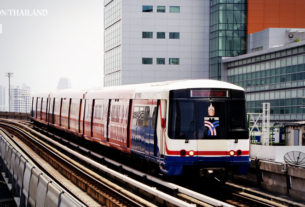 Court rules in Japan’s first plea bargaining case in Mitsubishi Hitachi Power Systems’ Thailand Bribery Case
Court rules in Japan’s first plea bargaining case in Mitsubishi Hitachi Power Systems’ Thailand Bribery Case
SEE ALSO: Japan’s Mitsubishi Hitachi Power Systems Make Plea Bargain In Thailand Bribery Case
Japan’s first bribery conviction involving plea bargaining has been successfully appealed to the Tokyo High Court. Both the defendant and the Tokyo District Prosecutors Office have appealed the Tokyo High Court’s decision to the Supreme Court.
Plea bargaining system
The plea bargaining system was created pursuant to an amendment to the Criminal Procedure Code in May 2016 and came into effect in June 2018 (for further details please see “New plea bargaining system: a new compliance risk for companies with operations in Japan?”). The new system allows suspects and defendants to enter into negotiations with prosecutors whereby evidence of others’ criminal conduct can be provided in return for criminal charges being reduced or dropped. The system covers white collar crimes such as fraud, bribery and embezzlement and certain offences relating to tax matters and the trade in financial products and instruments.
Facts
In February 2015 an employee of Mitsubishi-Hitachi Power Systems (MHPS), a Japan-based power plant construction company, paid approximately Bt110 million to a Thai government official in exchange for the granting of a permit to use a port during the construction of a power plant in Thailand.(1)
Shortly after MHPS discovered the bribe, it conducted an internal investigation led by outside counsel and in June 2015 it disclosed the results of the investigation to the Tokyo District Prosecutors Office (at that time, the plea bargaining system had yet to be introduced). Subsequently, MHPS agreed to cooperate with the public prosecutors’ investigation and offered evidence in exchange for corporate immunity from prosecution under the new plea bargaining system (for further details please see “New plea bargaining system in practice”).
Satoshi Uchida, a former executive of MHPS, was one of three individuals charged with bribing the official at the Thai Ministry of Transport. Under Japanese law, an accomplice to a crime can expect to receive a more lenient sentence than they otherwise would if their involvement is deemed to be less significant than other accomplices. In light of this, the trial and appeal have focused on whether Uchida explicitly approved the bribe or whether he merely knew that the bribe may be paid and failed to stop it.
Tokyo District Court decision
At the trial in the Tokyo District Court, Uchida’s former colleagues testified that he had approved bribing the Thai official. The Tokyo District Court:
found the testimony credible;
held that Uchida was a principal accomplice; and
sentenced him to 18 months’ imprisonment, suspended for three years.
Tokyo High Court decision
On 21 July 2020 the Tokyo High Court overturned the Tokyo District Court’s decision, holding that the evidence of Uchida’s former colleagues was partially unreliable.
While the Tokyo High Court agreed that Uchida had made a statement to his colleagues along the lines of “it can’t be helped” around the time that the bribe had been paid, the court also found that he had been hesitant and had urged those who reported to him to come up with alternatives.
As a result, the Tokyo High Court ruled that Uchida had merely assisted bribery by failing to stop the two individuals who reported to him from bribing the Thai official.
The Tokyo High Court overturned Uchida’s custodial sentence and instead imposed a fine of Y2.5 million (approximately £18,000) on him.
Supreme Court
Both the public prosecutor and Uchida have appealed to the Supreme Court.
Comment
The Tokyo High Court’s decision is interesting for two reasons. As in other jurisdictions (eg, England and Wales), an appeal court in Japan should overturn a trial judge’s decision in relation to findings of fact only in limited circumstances – for instance, if the judge’s findings could not be reasonably explained or justified. This is particularly the case in relation to witness evidence as the thinking is that the trial judge will have had the benefit of hearing witness evidence first hand whereas an appeal court will not. Further, a decision will be overturned only if the new findings of fact would affect the original sentence imposed.
In this case, the Tokyo High Court found that the trial judge’s findings in relation to the evidence of Uchida’s former colleagues were unreasonable because:
– the evidence of the two individuals who reported to Uchida was inconsistent in relation to whether Uchida had explicitly approved paying the bribe, and thus less weight should be placed on this evidence;
– the trial judge had underestimated the extent to which the interests of one of the individuals who reported to Uchida diverged from that of Uchida himself (ie, if it was found that Uchida had ordered the bribe, the individual who reported to Uchida would be less culpable, so there was an incentive for him to blame Uchida); and
– the individuals who reported to Uchida may have believed that they would be blamed if the permit from the Thai government could not be obtained in a timely manner and the project was delayed. This may have led the two individuals to proceed with the plan to bribe the official without Uchida’s formal approval. The Tokyo High Court found that the trial judge had failed to carefully consider this last point as well.
Second, notwithstanding the Tokyo High Court’s findings in relation to the unreasonableness of the first-instance decision, the appeal judgment could be perceived as sending the message that an individual is less culpable for engaging in bribery if they did not explicitly approve the bribe or were apparently reluctant or hesitant to engage in the conduct in question, even where that person had full knowledge of what was being proposed and was in a position of authority. This kind of finding will arguably make the quest to stamp out corporate bribery and corruption more difficult and is likely one reason that the Tokyo District Prosecutors Office is appealing the decision.
As Japan’s first plea bargaining case, the MHPS case is significant because it will likely influence how public prosecutors use the plea bargaining system in future. If prosecutors are not confident of securing convictions against employees involved in white collar crime, they may be less willing to grant the corporate entity immunity from prosecution for cooperating with the investigation. Corporates, in turn, may be less forthcoming about disclosing instances of misconduct as a result. The outcome of the appeal to the Supreme Court in the MHPS case should give businesses more clarity as to how the system is likely to be used going forwards.
For further information on this topic please contact Takayuki Inoue or John Lane at Nagashima Ohno & Tsunematsu by telephone (+81 3 6889 7000) or email (takayuki_inoue@noandt.com or john_lane@noandt.com). The Nagashima Ohno & Tsunematsu website can be accessed at www.noandt.com.
Endnotes
(1) Publicly available information before trial suggested that the amount of the bribe was Bt20 million. However, the public prosecutor brought charges in relation to a bribe of Bt110 million and the Tokyo District Court found accordingly.
Source: https://www.internationallawoffice.com/Newsletters/White-Collar-Crime/Japan/Nagashima-Ohno-Tsunematsu/Court-rules-in-Japans-first-plea-bargaining-case



